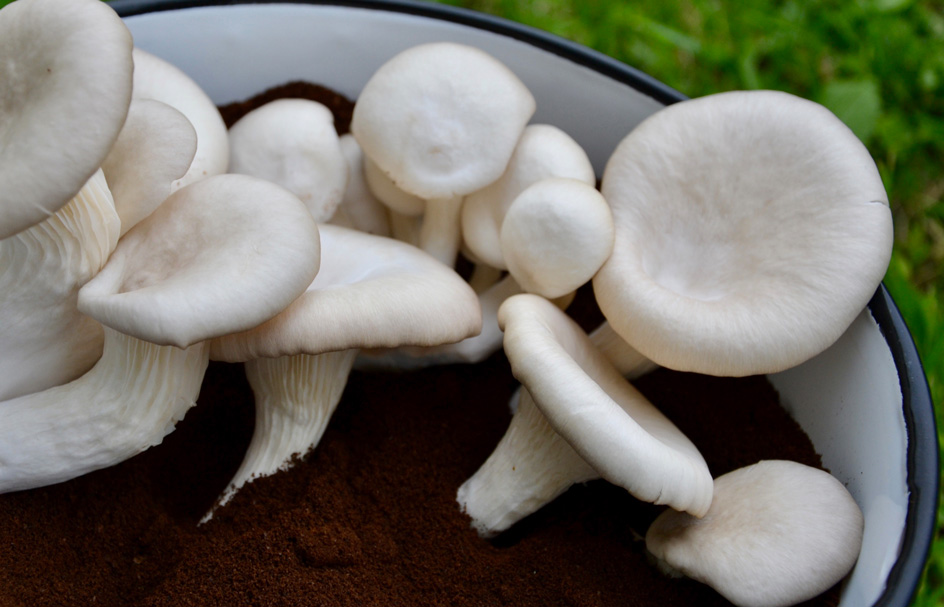25 Grams of Ethiopia Guji Buy Now
- Producer: Guji Highland Coffee Plantation
- Altitude: 2100–2130
- Variety: Heirloom
- Process: Natural
- Drying: African Beds
- Profile: Wild berries, round body, well-balanced, floral
From bean to bottle
Our latest addition is not just any kind of coffee. So, let us introduce to you… the Guji! We sourced the finest specialty coffee from the Guji zone in southern Ethiopia and, as you can imagine, it’s been really exciting to convert this beauty into a bottle of the fanciest cold brew out there. What you get is an amazingly fruity coffee with a round body and wild berry notes. But first, let us take you on the incredible journey from Bean2Bottle and discover yourself why the 25 grams of Guji in each bottle are so special.
Ethiopia – The Birthplace of Coffee
It’s no coincidence that Batch No. 8 is already the fifth cold brew for which we use coffee from Ethiopia. The astonishing flavours of this East African country never ceases to amaze our palate. And it still manages to surprise even the most avid coffee drinkers among us. But the fascination with Ethiopian coffee goes much beyond its enchanting characteristics; it is, after all, the birthplace of coffee. While Coffea arabica, or simply Arabica, first appeared in southern Sudan, it only flourished once it spread into Ethiopia. It’s believed to have been discovered and consumed by humans for the first time in the ninth century. From there, it made its way to Yemen and later to Turkey, Egypt and eventually Europe in the early 1600s. Fastforward 400 years and you get to enjoy this delicious coffee in a chilled bottle of 25 GRAMS cold brew. Pretty cool, ey?
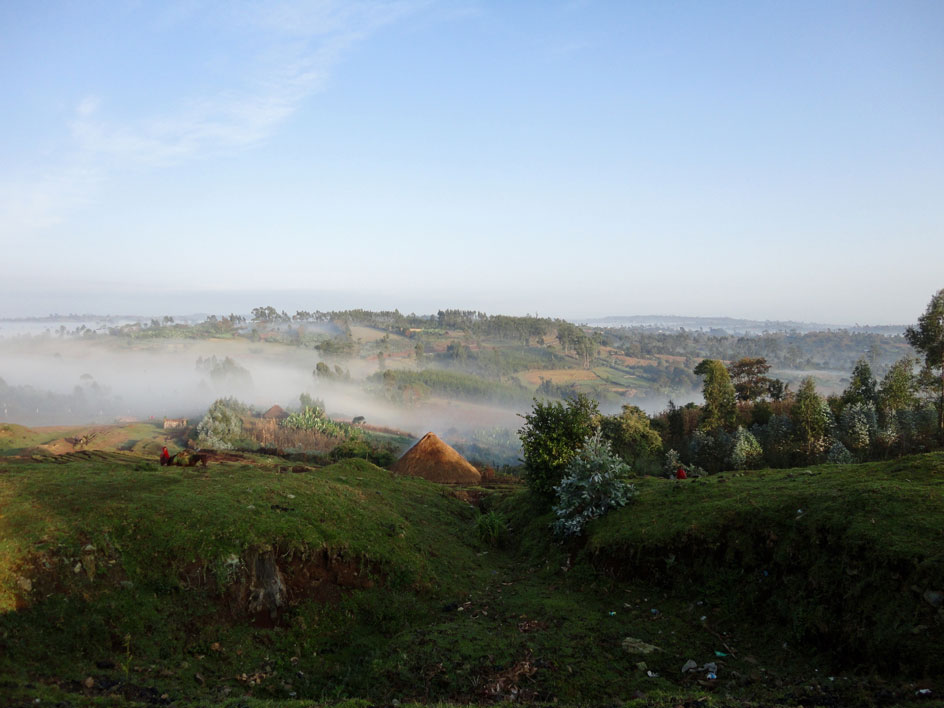
Origin: Guji
The Guji Highland in the south of Ethiopia contains a vast forested area called Dambi Uddo, close to the town of Shikasso. The forest is known to be highly biodiverse and comprises about fifteen tree species that are threatened to become extinct in Ethiopia. In order to preserve the ecological diversity, the coffee you will find in Batch No. 8 is shade-grown, meaning that the coffee plants were introduced underneath a dense tree canopy. Yet, shade-grown coffee is believed not only to benefit biodiversity, but also to maintain soil health, regulate the micro-climate, protect from adverse weather conditions and even climate change. Coffee produced in such an agro-forestry system can also help farmers to generate additional income through the production of honey, ginger and firewood. Thanks to the lush forests and the fertile volcanic soils, Guji convinced with its incredibly complex and unique coffees, distinguished by sweet and fruity notes.
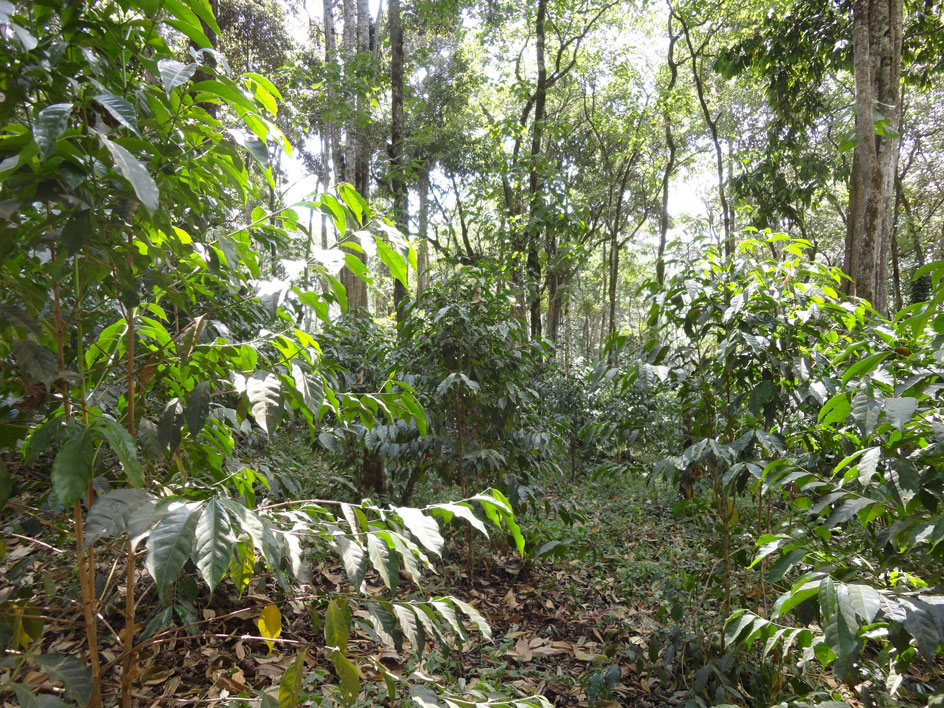
Coffee Producers
The Guji Highland Coffee Plantation is a family business run by Wadessa Yachisa. Despite some personal and professional setbacks, Wadessa fell in love with the Dambi Uddo forest and its coffee landscape and decided to devote himself to coffee production. The Guji Highland Coffee Plantation, which he founded in 2012 with some members of his family, now covers around 150 hectares and works with several local coffee farmers. The coffee in batch #8 is from the Quaro-Forest a 20 hectare location with an altitude of 2100m. As a producer, Wadessa Yachisa is always driven by a passion to culture high-quality coffee using production methods that also protect the environment.
Coffee Beans and Processing
Ethiopia has around six to ten thousand different coffee varieties, most of them labeled as Mixed Heirloom varieties. The 25 grams of coffee you find in each of our bottles are heirloom varieties and are grown at an altitude of 2100, where you will find a much cooler climate. This, in turn, allows the coffee cherry to ripen at a slower pace and thus, to develop all the properties we so crave for. As with our previous Batch No.7 from Rwanda, the hand-picked green coffee went through a “natural” processing. This involves leaving the ripe cherries to dry on raised African beds under full exposure to the sun, before the beans get removed. Apart from using much less water for processing, the natural method also gives the coffee a very distinct taste, a more complex character and in this case also floral aromas.
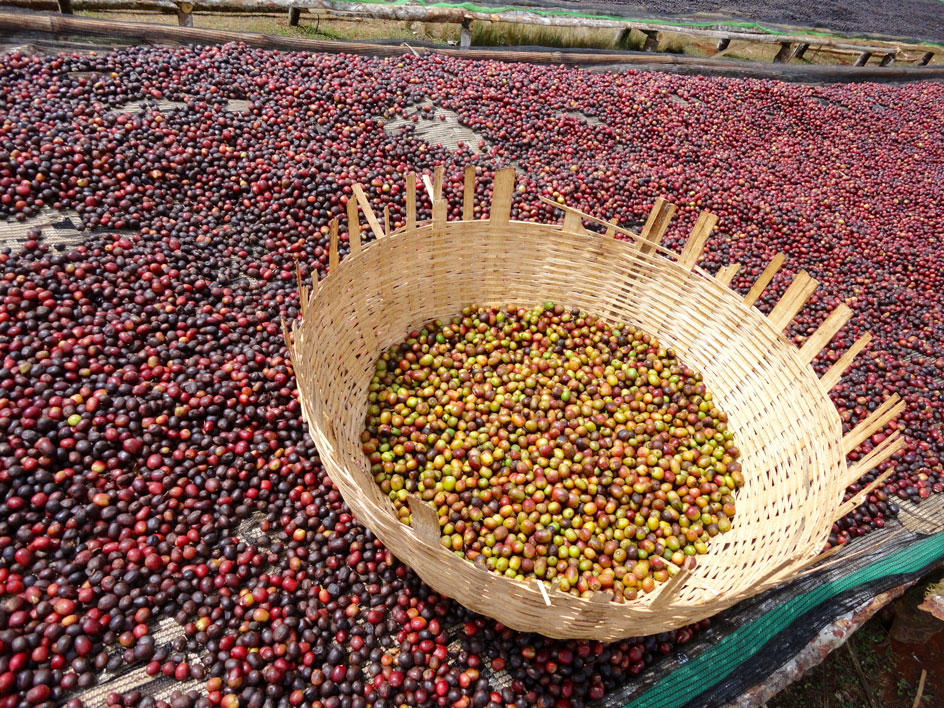
Importing
We strive to be fully transparent in our business so that our loyal cold brew lovers get to know where and how we source our lush beans. We also want to make sure that most of what we pay for the green coffee really gets to the producer. The green coffee for the Guji batch were imported by the French specialty coffee traders at Belco with whom we share the drive to a innovative sutainable and environmentally friendly coffee culture. Their ultra-professional approach to sourcing and superb quality control makes them one of the top suppliers for high end specialty coffee.
Roasting
We tend to use brighter roasts for our cold brews as we find that it gives the coffee a chance to fully express its unique character. Our partners at Wildkaffee really know the kind of roasting profile we wish for and just do a brilliant job in highlighting the terroir of our coffees. While sometimes it takes a bit of tweaking around, the roast for this batch just hit the spot right away. The first cupping already revealed the wild berry notes and silky texture we were looking for. The terroir along with a natural sweetness shows the spot on roast profile. Thank you very much guys! Dangscheee ☺
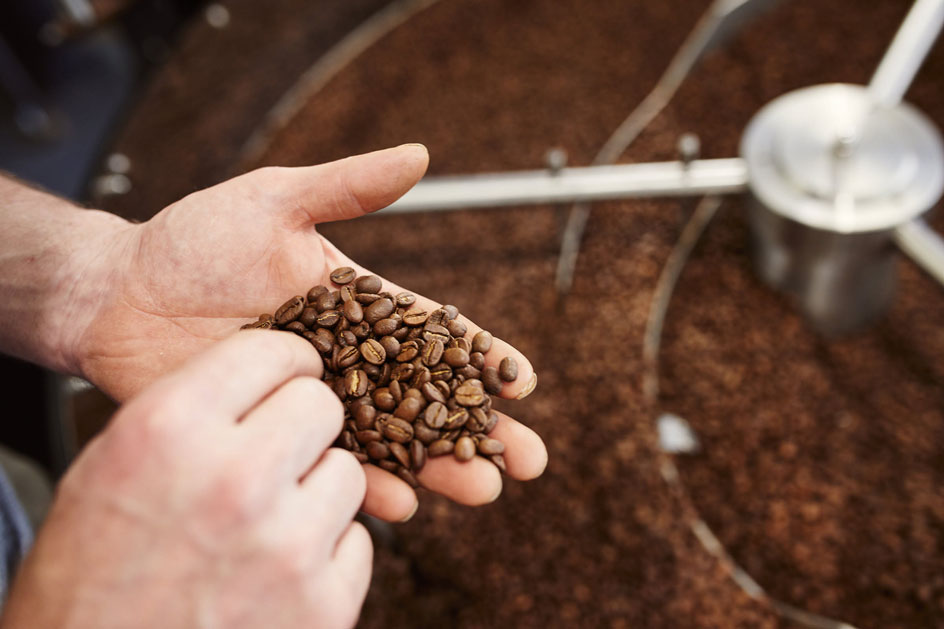
Reusing the coffee grounds
As always, after the whole cold-brewing process, we donate the used coffee grounds to our partner Pilzkiste (www.pilzkiste.at), a start-up in Graz where Nina, Mercedes and Jasmin decided to end the needless waste of coffee grounds. So, they developed this fantastic urban mushroom farm and grow oyster mushrooms straight out of the coffee grounds. And yeah, besides being a truly sustainable initiative, the mushrooms are just badass. Go, check’em out!
